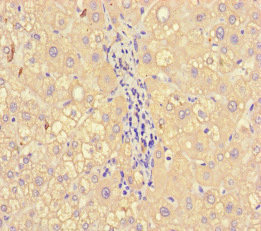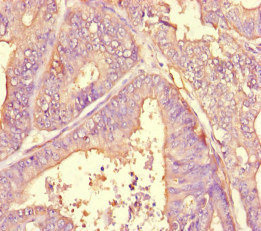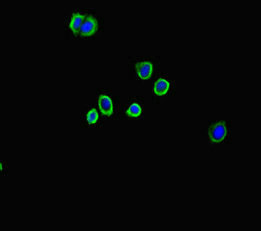Full Product Name
Rabbit anti-Homo sapiens (Human) A2M Polyclonal antibody
Alternative Names
A2m antibody; A2MG_HUMAN antibody; Alpha 2 M antibody; Alpha 2M antibody; Alpha-2-M antibody; Alpha-2-macroglobulin antibody; C3 and PZP-like alpha-2-macroglobulin domain-containing protein 5 antibody; CPAMD5 antibody; DKFZp779B086 antibody; FWP007 antibody; S863 7 antibody
Immunogen
Recombinant Human Alpha-2-macroglobulin protein (1216-1467AA)
Immunogen Species
Homo sapiens (Human)
Conjugate
Non-conjugated
The A2M Antibody (Product code: CSB-PA14579A0Rb) is Non-conjugated. For A2M Antibody with conjugates, please check the following table.
Available Conjugates
| Conjugate |
Product Code |
Product Name |
Application |
| HRP |
CSB-PA14579B0Rb |
A2M Antibody, HRP conjugated |
ELISA |
| FITC |
CSB-PA14579C0Rb |
A2M Antibody, FITC conjugated |
|
| Biotin |
CSB-PA14579D0Rb |
A2M Antibody, Biotin conjugated |
ELISA |
Purification Method
>95%, Protein G purified
Concentration
It differs from different batches. Please contact us to confirm it.
Buffer
Preservative: 0.03% Proclin 300
Constituents: 50% Glycerol, 0.01M PBS, PH 7.4
Tested Applications
ELISA, IHC, IF
Recommended Dilution
| Application |
Recommended Dilution |
| IHC |
1:20-1:200 |
| IF |
1:50-1:200 |
Storage
Upon receipt, store at -20°C or -80°C. Avoid repeated freeze.
Lead Time
Basically, we can dispatch the products out in 1-3 working days after receiving your orders. Delivery time maybe differs from different purchasing way or location, please kindly consult your local distributors for specific delivery time.
Usage
For Research Use Only. Not for use in diagnostic or therapeutic procedures.









